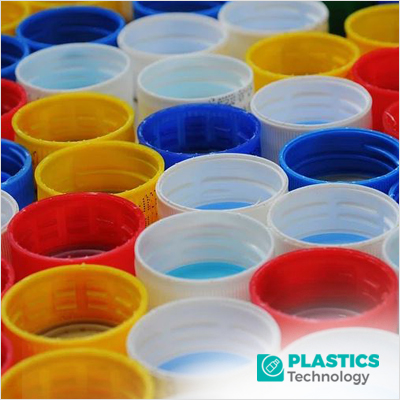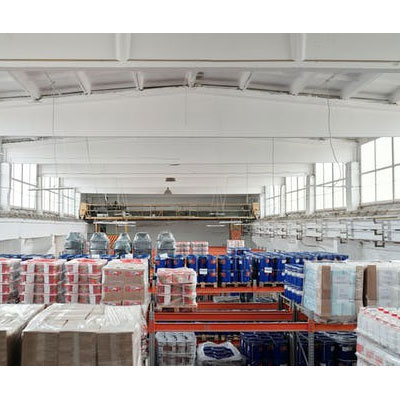Revolutionizing the Plastics Industry: Trends, Challenges, and Sustainable Solutions

The plastics industry has undergone significant transformations in recent years, driven by evolving consumer preferences, regulatory changes, and a growing awareness of environmental issues. In this article, we delve into the key trends shaping the plastics industry, the challenges it faces, and the innovative sustainable solutions that are driving its revolution.
A. Trends Shaping the Plastics Industry
Shift towards Bioplastics: One of the prominent trends in the plastics industry is the increasing adoption of bioplastics. These materials are derived from renewable sources such as corn starch, sugarcane, or even algae. Bioplastics offer a more sustainable alternative to traditional plastics derived from fossil fuels, reducing carbon emissions and dependence on non-renewable resources.
Circular Economy Initiatives: The concept of a circular economy, where resources are used efficiently, reused, and recycled to minimize waste, has gained traction in the plastics industry. Companies are investing in recycling technologies, designing products for recyclability, and implementing closed-loop systems to promote a more sustainable and circular approach to plastic usage.
Advanced Recycling Technologies: Innovations in recycling technologies are revolutionizing how plastics are managed. Advanced recycling methods such as chemical recycling and pyrolysis can break down plastics into their basic components, allowing for the production of high-quality recycled plastics that can be used in various applications, including packaging, automotive components, and construction materials.
Focus on Lightweighting: Lightweighting, the process of reducing the weight of plastic products while maintaining performance and functionality, is a key trend driving innovation in the plastics industry. Lightweight plastics not only reduce material usage but also contribute to fuel efficiency in automotive and aerospace applications, making them increasingly attractive to manufacturers.
Digitalization and Industry 4.0: The integration of digital technologies, automation, and data analytics, often referred to as Industry 4.0, is transforming the plastics manufacturing process. Smart factories equipped with IoT sensors, AI-powered quality control systems, and predictive maintenance tools are enhancing efficiency, reducing waste, and enabling real-time decision-making in the production of plastics.
| Also Read: Plastics and Energy: Role in Renewable Energy Technologies and Energy Efficiency |
B. Challenges Faced by the Plastics Industry
Environmental Impact: Perhaps the most pressing challenge facing the plastics industry is its environmental impact. Plastic pollution, including marine litter, microplastics in the environment, and landfill waste, has raised concerns globally. Addressing these environmental challenges requires concerted efforts across the entire value chain, from raw material sourcing to end-of-life disposal and recycling.
Regulatory Compliance: Regulatory frameworks governing the production, use, and disposal of plastics are evolving, with stricter regulations aimed at reducing single-use plastics, promoting recycling, and encouraging sustainable practices. Compliance with these regulations presents challenges for manufacturers, necessitating investments in sustainable technologies and processes.
Consumer Perception and Awareness: Changing consumer perceptions and growing awareness of environmental issues are influencing purchasing decisions. Consumers are increasingly demanding eco-friendly, recyclable, and biodegradable packaging solutions, putting pressure on companies to adopt sustainable practices and offer environmentally responsible products.
Supply Chain Resilience: The plastics industry is susceptible to supply chain disruptions, whether due to raw material shortages, geopolitical factors, or natural disasters. Building resilience in the supply chain, diversifying sourcing strategies, and investing in risk management are essential for mitigating supply chain risks and ensuring continuity of operations.
Technological Advancements: While technological advancements drive innovation in the plastics industry, they also pose challenges in terms of skill requirements, cybersecurity threats, and the pace of technological change. Companies must invest in workforce training, cybersecurity measures, and agile strategies to harness the benefits of technological advancements while managing associated risks.
C. Sustainable Solutions Driving the Plastics Industry Revolution
Biodegradable and Compostable Plastics: Biodegradable plastics designed to break down naturally in the environment offer a sustainable alternative to traditional plastics. Compostable plastics, which can be decomposed in industrial composting facilities, provide a closed-loop solution for organic waste management.
Recycling and Circular Economy Initiatives: Investing in recycling infrastructure, promoting closed-loop recycling systems, and designing products for recyclability are key strategies for advancing the circular economy in the plastics industry. Collaborative efforts involving manufacturers, recyclers, policymakers, and consumers are essential for scaling up recycling initiatives.
Bio-based Feedstocks: Utilizing bio-based feedstocks such as plant-based polymers and renewable chemicals reduces the reliance on fossil fuels and contributes to lower carbon emissions. Research and development in bio-based materials are driving innovation and expanding the range of sustainable options available to the plastics industry.
Innovative Packaging Solutions: Reducing packaging waste through lightweighting, redesigning packaging for efficiency, and exploring alternative materials such as paper-based or biodegradable packaging are ways to address the environmental impact of plastic packaging. Smart packaging technologies incorporating sensors and RFID tags enable traceability and enhance product safety and sustainability.
Collaborative Partnerships: Collaboration among industry stakeholders, academia, research institutions, and government agencies is crucial for driving sustainable solutions in the plastics industry. Partnerships can facilitate knowledge sharing, technology transfer, and collective action to address complex challenges and accelerate the transition to a more sustainable plastics ecosystem.
Conclusion
The plastics industry is at a pivotal moment, where innovation, sustainability, and collaboration are driving its evolution. By embracing trends such as bioplastics, circular economy initiatives, advanced recycling technologies, and digitalization, the industry can overcome challenges related to environmental impact, regulatory compliance, consumer expectations, supply chain resilience, and technological advancements. Sustainable solutions that prioritize resource efficiency, waste reduction, and environmental stewardship are key to revolutionizing the plastics industry and shaping a more sustainable future.



